Written by Xingyi Wu, Aug 2018:
How to help Prevent Dementia
Dementia is said to be the cruellest disease because it causes two deaths: The slow extinction of the personality, followed by departure from life.
- In 2016, dementia became the leading cause of deaths among females, surpassing even heart disease.
- About 10% over-65s, 30% of over-85s, and 52% of aged-care residents have dementia.
- Dementia is the single greatest cause of disability in seniors and the 3rd leading cause of disability burden.
If your family member has dementia, you CAN make a huge difference. Read on.
Effective support is rewarding
Supporting a parent with dementia can be difficult and traumatic, but it can also be rewarding. University of Pittsburgh scientists Dr T. Inagaki and Dr. E. Orehek identified in a 2016 CDPS article that when support is perceived to be effective, the support can also benefit the caregiver, leading to reduced stress, increased happiness, and increased sense of social connectedness.
It can even forge a powerful influence on your outlook.
This article will convince you that your social engagement with your loved one is vital — especially if they are at risk of dementia.
U.S. Study: Video conversation improved cognitive function
A randomized study showed that web-based face-to-face conversation significantly increased cognitive function after just 6 weeks. The average age of participants was 80.5 years old. In contrast, the control group, who had audio-only telephone interactions once per week, did not experience the improvement. This result suggests that video conversation could enhance cognitive functions and delay the onset of dementia.
The research paper detailing the ground-breaking conclusions was published in 2015 and co-authored by leading scientists from the Oregon Health and Science University, the University of Michigan, the University of Miami and the Portland Veterans Affairs Medical Center.
Participants were assessed on a recognized dementia metric called Clinical Dementia Rating (CDR). They measured between 0 and 0.5 on the scale, where 0 is considered normal (for age) and 0.5 is categorized as Mild Cognitive Impairment (MCI). Half the participants were selected without dementia (CDR = 0) and half the participants were selected with mild dementia.
“Before and after” cognitive test scores and loneliness scores were compared between the intervention group and the control group.
Adherence to the daily conversation routine was very high, with 77% to 100% daily compliance (average: 89%). There were absolutely no drop-outs whatsoever. To help achieve such a high level of adherence, a large touchscreen monitor and a user-friendly interface were given special attention. The authors noted that compared to other stimulation methods, such as game-invoked cognitive training, face-to-face conversation is more natural, more engaging and requires less motivation.
The participants with MCI (mild dementia) improved in their psychomotor speed using assessments that included the Cogstate detection tests, as well as the trail-making A test.
The cognitively intact participants (those without dementia) improved significantly in the semantic fluency test taken at 6 weeks (immediately following the trial). The improvements also proved to be durable, as measured by the phonemic fluency test taken at 18 weeks (12 weeks after the end of the trial). The resulting enhancements in language-based executive brain function suggest that web-based face-to-face conversation can be used as a cost-effective technique for home-based dementia prevention.
Key take-aways:
- Web-based conversation works — and shows results after just 6 weeks! This is great news for family members too far away to visit, too busy, lacking the resources or unable to travel often.
- Just 30 minutes a day of face-to-face time was shown to be effective. So, for example, video calls twice a week, with each of 3-4 family members, is all it takes.
- Those with and without dementia benefited. If you have elderly relatives living alone or within a facility, don’t wait until memory loss starts.
- Audio-only interaction does not produce the same benefit (we explain why below). We suggest to “trade-up” or augment the regular telephone with a video phone.
- Published studies indicate that with age, emotional motives help drive engagement and enhanced outcomes. This suggests that video conversation with family and friends, compared to conversation with staff and strangers, is much more likely to ensure adherence and positive results.
- The more, the better. Recent MRI studies link the size of social networks with the density of gray matter and with amygdala volume. This suggests to setup as many family and friends as possible to take part in video conversations.
- A large touch-screen user-friendly interface is key to acceptance and adherence. Most seniors facing dementia would struggle with an iPad or tablet. They require a user-friendly device, such as a video phone designed specifically for the elderly and those with dementia.
Recommendation for prevention and treatment
The authors of the study suggest that user-friendly video conversation could be a useful home-based prevention approach against cognitive decline.
Read the abstract and download the original paper.
Konnekt has witnessed similar results first-hand (but not in a controlled study). We believe that this will revolutionize the way we care for our elderly relatives — both those who live independently as well as those within residential aged care.
New studies measure long-term benefit
The results of the above study were so positive that Dr. Hiroko Dodge and her colleagues are currently conducting 2 new follow-up studies to measure the long-term health outcomes. These studies are quantifying the impact of face-to-face web-based conversation on the delay in Alzheimer’s Disease (AD) onset and the delay in cognitive decline of seniors with MCI (Mild Cognitive Impairment) over 5 years. The studies are also funded by the National Institute on Aging, a division of the U.S. National Institutes of Health.
Related research: Read summaries, download original papers, and see our own 2018 conference presentation on Elderly Social Isolation.
U.K. Study: Video calling helped slow memory decline
A second, separate study conducted in the United Kingdom, involving over 11,000 people aged from 50 to 90+ years old, showed that online communication with video helps to decrease the memory decline that is associated with Alzheimer’s Disease and dementia.
The results compared two groups: Those who had only offline (in-person) communication, and those who also had online communication (video calling). The group who also participated in video calls had a clearly measurable and superior outcome.
Cognitive Function Improved for People with Impaired Hearing
The 2021 study, published in the esteemed Journals of Gerontology, demonstrated that both people with and without hearing loss can benefit cognitively (improved memory) from video communication.
Authors of the medical study included health experts from:
- Geller Institute of Ageing and Memory, School of Biomedical Sciences, University of West London, UK
-
Division of Nursing, Midwifery & Social Work, University of Manchester, UK
-
Global Development Institute and Manchester Institute for Collaborative Research on Ageing, University of Manchester, UK
The study drew from the English Longitudinal Study of Ageing, which commenced as early as 2002. Therefore, the study included a period of over 15 years, highlighting the longer term benefits of face-to-face conversation via Skype or similar platforms.
How to delay dementia onset or reduce dementia risk
Health professionals also recommend:
- Healthy diet: Cut sugary foods and refined carbs. Limit processed foods. Avoid trans fats. Increase omega-3 fats. Enjoy fruit and vegetables. Drink 2-4 cups of tea daily. Keep alcohol to a minimum.
Why it works: Being overweight doubles Alzheimer’s risk. Correct diet can reduce inflammation, which injures neurons, and lower the risk of diabetes, which inhibits communication between brain cells. In addition, healthy fats may reduce beta-amyloid plaques. - Control blood pressure: Get tested regularly and follow doctor’s orders.
Why it works: High blood pressure is linked to vascular dementia. - Exercise regularly: 150 minutes of moderate intensity exercise a week, combining cardio with strength training.
Why this works: Exercise stimulates the brain’s ability to maintain old connections and to form new ones. - Quit smoking: Smokers over 65 have an 80% higher risk of Alzheimer’s.
Why it works: Improved circulation benefits the brain almost immediately. - Manage depression: Identify signs of depression early and consult a health professional for treatment.
Why it works: Depression episodes have a physical effect on the brain. Depression is linked to dementia risk. - Sleep well: Most of us need 8 hours of sleep. If you snore, get screened for sleep apnea. Keep a regular sleep schedule. Limit naps to 30 minutes in the early afternoon. Avoid TV, computers, mobiles and bright lights in the 2 hours before sleep.
Why it works: Poor sleep leads to higher levels of beta-amyloid. Deep sleep is needed for memory formation. - Mental stimulation: Learn something new. Enjoy puzzles and games. Practice memorization. Vary your daily habits.
Why it works: Like exercise, mental stimulation improves cognitive function. Activities involving multiple tasks or requiring communication and interaction offer the greatest protection. For this reason, social engagement is likely the best form of mental stimulation. - Social engagement: Verbal communication with others exercises memory, linguistic skills, attention, executive function and abstract reasoning. Face-to-face communication significantly adds to this by exercising visual processing and pattern recognition, interpretation of facial movements and body language that convey meaning and emotion, and the coordinated use of gestures and movement which are linked to psychomotor skills.
Why it works: Aside from the obvious benefits of exercising more of the brain than solitary puzzles do, social engagement with family and friends can actually hit each and every one of the other recommendations above:
- We’re more likely to maintain a healthy diet and exercise habit, comply with medication, notice depression episodes, and follow doctor’s orders. We care how we look to our friends; they genuinely care about our health; and socializing often involves grooming, movement and other physical activity.
- We’re more likely to maintain a good sleep pattern. Keeping social appointments requires staying awake during the day and helps tire us for the night.
In summary, face-to-face social engagement is vital for those with dementia or at risk of dementia. It exercises key areas of the brain, and positively influences the other major risk factors.
Get the Konnekt white paper about 8 ways to help an elderly parent with dementia.
Sources:
Videophone for Dementia
- Videophone significantly increases face-to-face social interaction
- Increasing face-to-face social interaction could be a promising intervention for improving cognitive function
- Incredibly simple user interface promotes usage and adherence
- Designed specifically for dementia and those at risk
- Videophone can automatically answer trusted callers, for peace of mind
Learn More
More useful research / studies
Social isolation is linked to depression, poor sleep, high blood pressure, declining functionality and morbidity. Read our easy summaries or download original papers on elderly social isolation.
Help your family member or client
Learn more about Konnekt Videophone for dementia. To trial Videophone for your client or family member, simply contact us and we’ll do the rest.




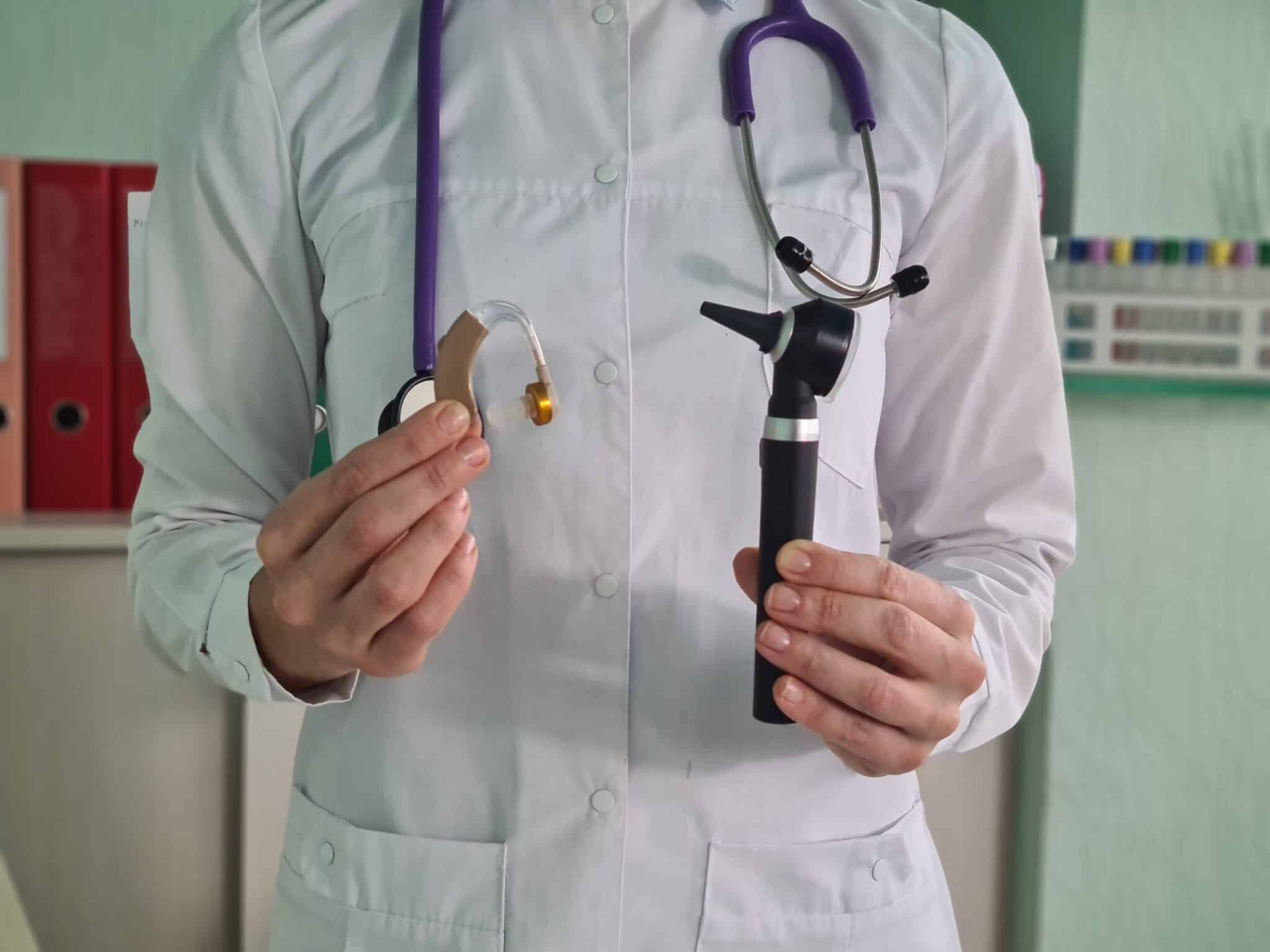

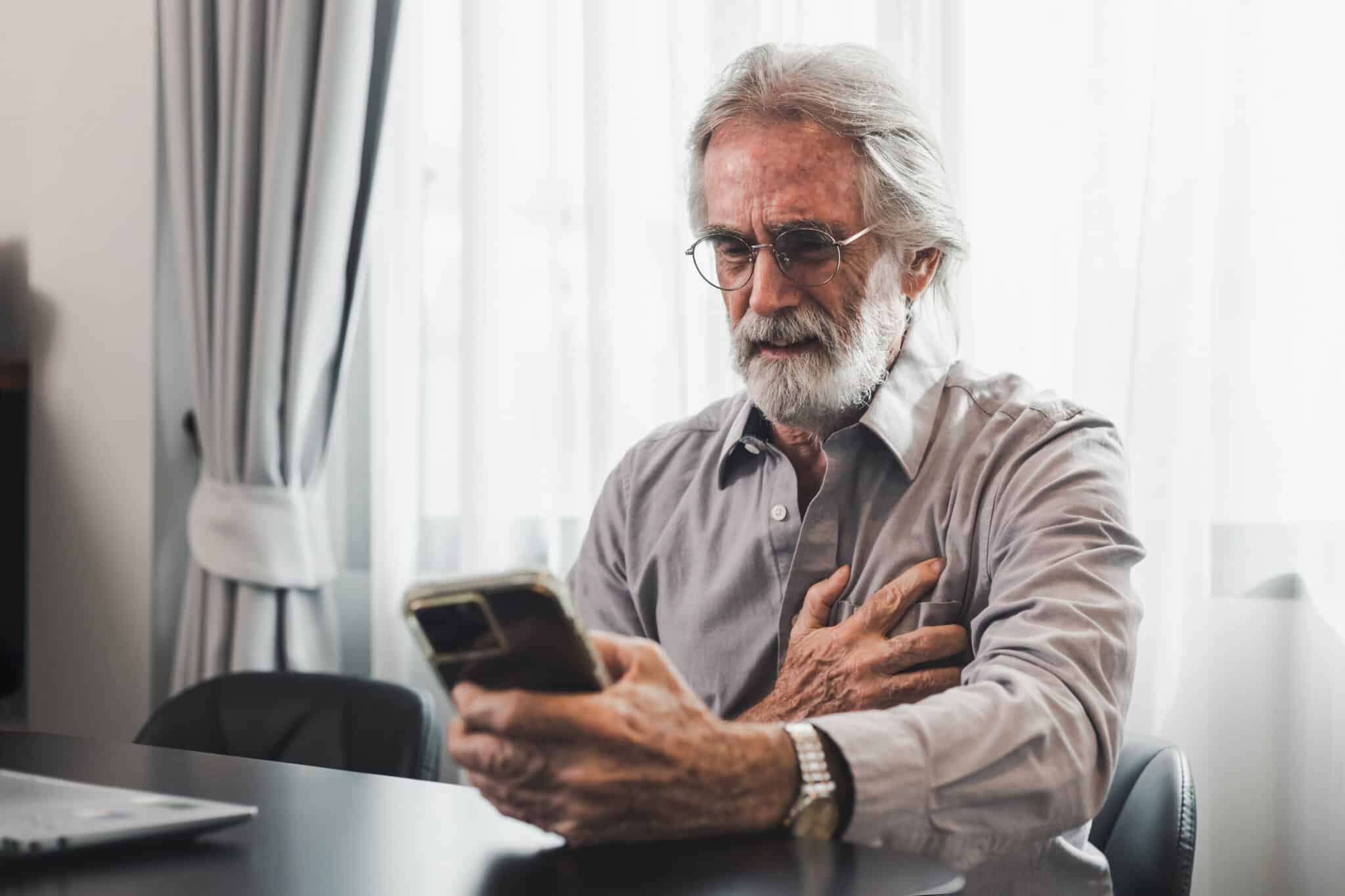

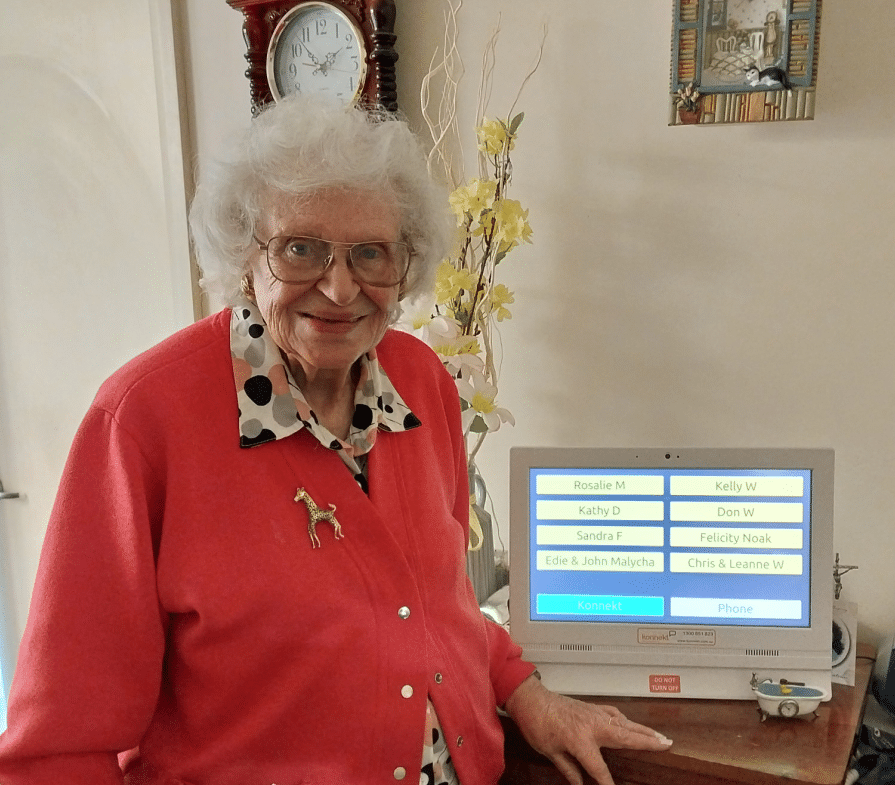

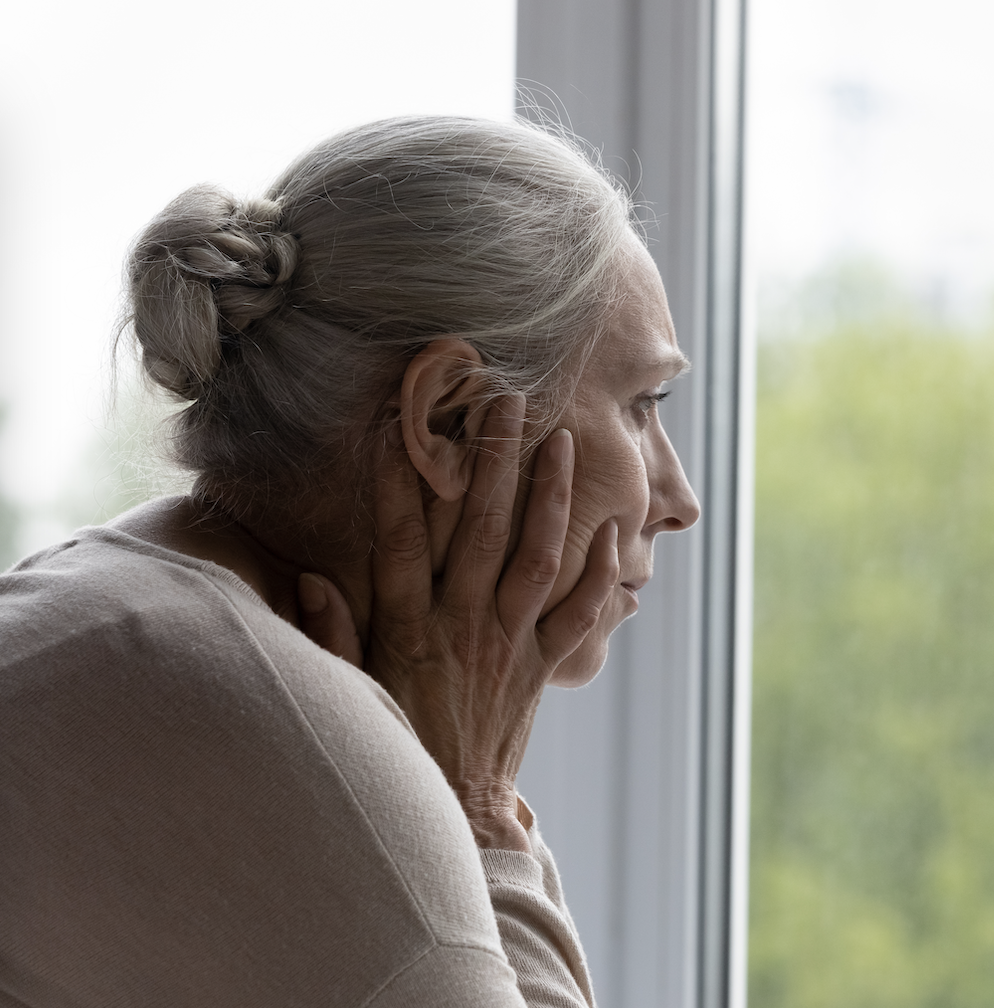
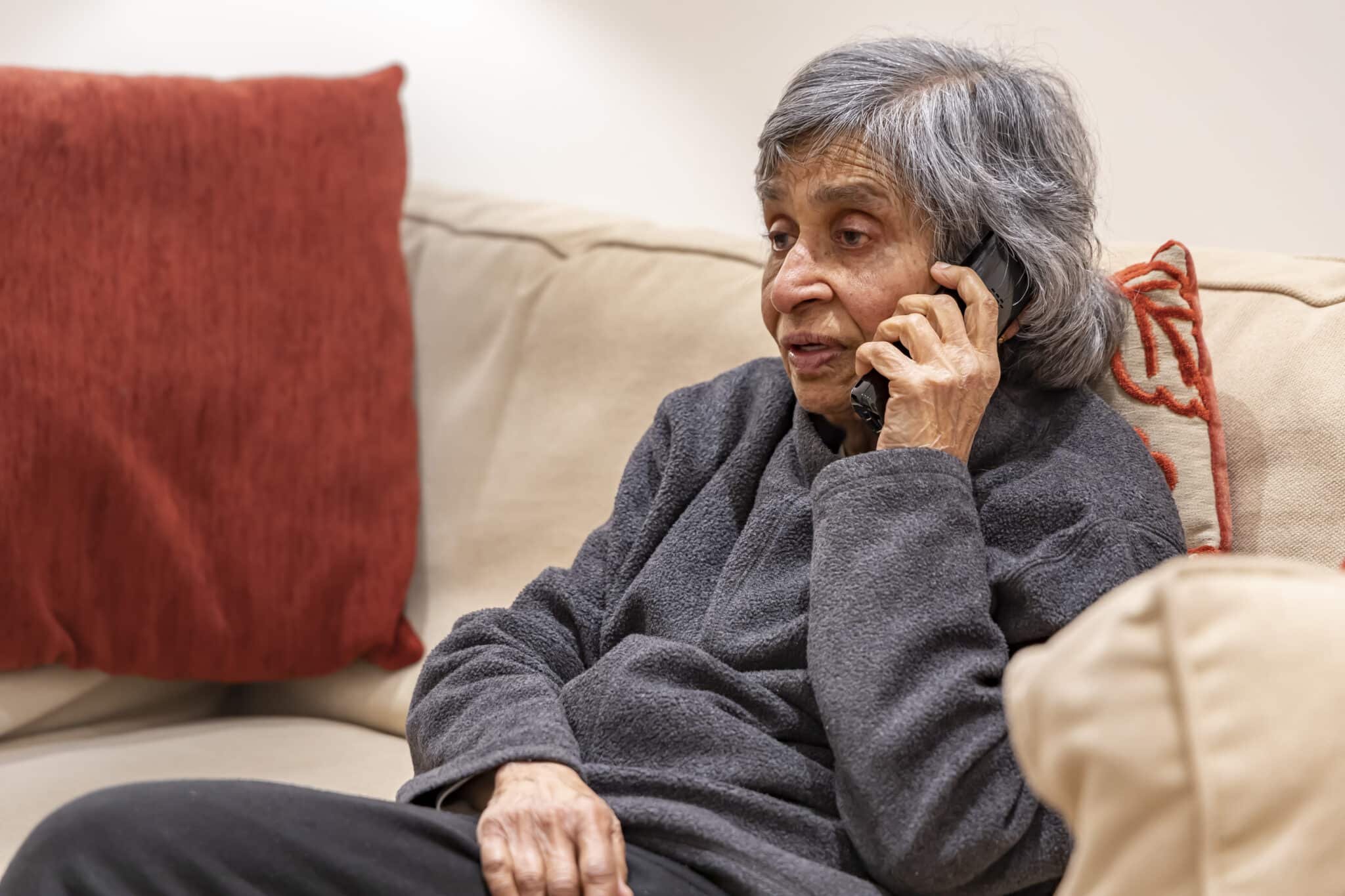
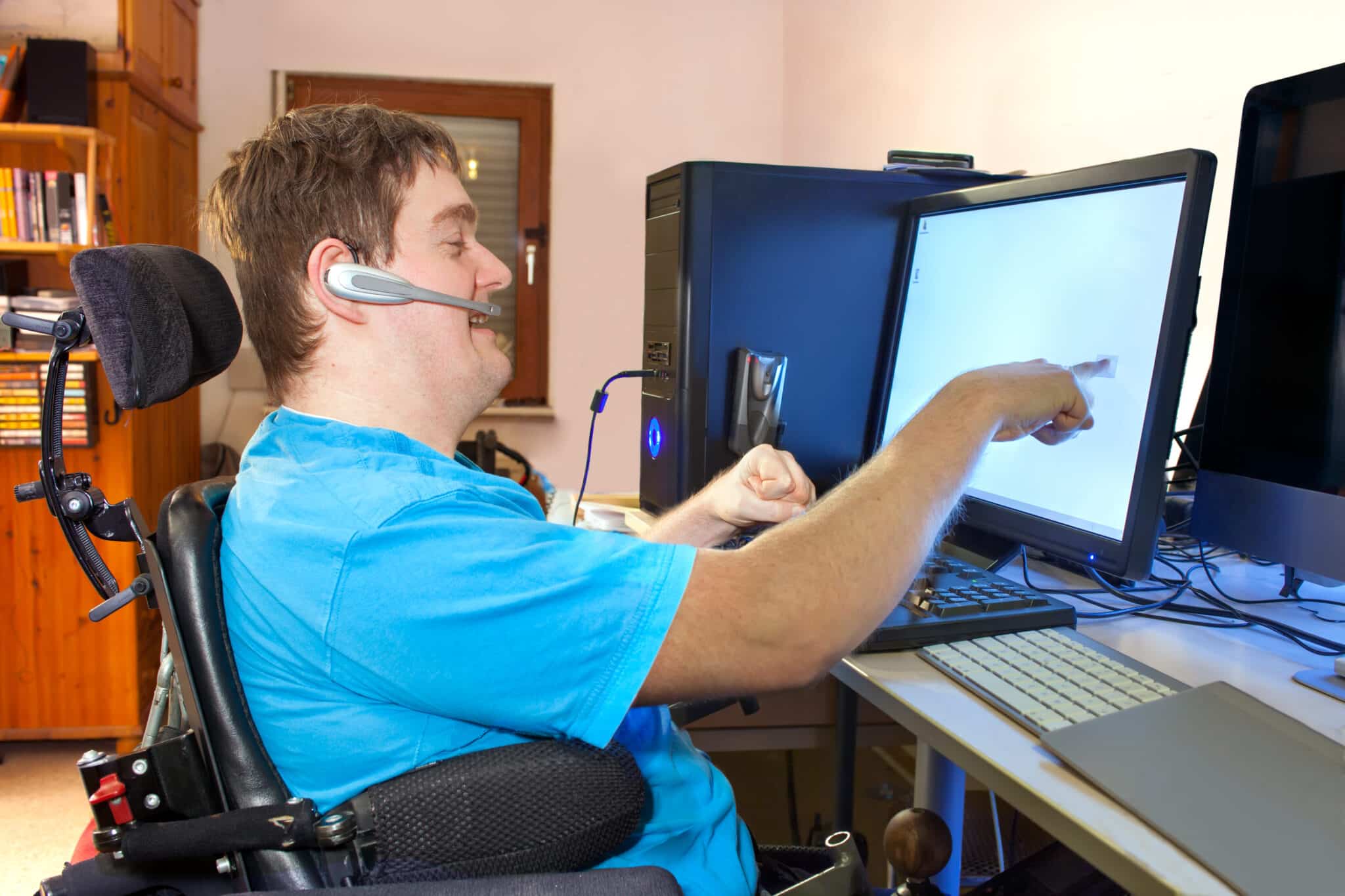
5 Comments.
From the UK: A University of Exeter study increased the daily social interaction of nursing home residents (who had dementia) from 2 minutes to 10 minutes. This improved wellbeing and had sustained benefits! The study involved 280 residents and care staff in 24 care homes over nine months.
This is further evidence of the importance of daily social interaction!
Read here: https://www.eurekalert.org/pub_releases/2018-07/uoe-jtm072518.php
My son was only 42 when diagnosed with young dementia was so healthy in his body eating and exercise daily passed away July 30 2018 aged 48 most horrific illness
I’m very sorry to hear about your loss, Carole. Thanks for taking the time to reply to our article. My own mother had dementia during her last couple of years and it was a difficult time for all of us. She was one of two people who were… how do I say it… the reasons for starting Konnekt, and why we are passionate about helping others who are faced with dementia. I cannot begin to imagine how it must feel losing one’s son to dementia.
I’ve shared stories from several other families here: https://www.konnekt.com.au/testimonials/
Any one suffering brain fog ,memory loss,,,Depression,falls,tremors,swallowing problems,incontinence should be screened for a vitamin b12 deficiency.How many folks in nursing homes if we’re screened ,& treated could be back home in the own environment living a full life.Unfortunately there is a world wide epidemic occurring due to a lack of medical knowledge & a flawed low range serum vitamin b12 .In Japan any serum B12 below 500 is treated resulting in very little dementia .In comparison to Australia’s low range B12 has decreased to 135 pmol/l at some laboratories which is appalling.My hubby & I are both victims with permanent nerve damage thanks to misdiagnosis.View videos on b12awareness.org to see cases of misdiagnosis & the devastation vitamin B12 deficiency causes in not only the elderly but the young folk as well.
Hi Marilyn,
Thanks for writing.
I do not have a medical background but my reading confirms your observations, as follows:
1. Internationally, the “low level” of B12 varies from 130 and 258 pmol/l while in Australia, most serum labs test for a “low level” of 220 pmol/l.
2. The incidence of B12 deficiency increases with age (>65 years).
3. Signs and symptoms of B12 deficiency can include dementia, as well as depression, fatigue and personality change.
4. There are now guidelines that recommend B12 level testing where there are signs of MCI or dementia in elderly patients.
5. Between 15% and 40% of patients with a low serum B12 reading do not actually have a B12 deficiency upon further investigation. As a result, a relatively new assay now measures active vitamin B12 levels.
6. It’s extremely rare to overdose on B12. (This is in contrast to some other vitamins, such as vitamin A, where higher doses may lead to health problems). You’d need to take over 1,000 times the recommended daily requirement.
7. Dietary vitamin B12 is obtained from animal products (dairy, meat, eggs, fish and seafood). A small amount may be obtained from bacteria found on unwashed, unpeeled, dried shitake mushrooms (as opposed to most other sorts), fermented soybean (specifically tempe), and dried purple laver (nori, or algae).
8. The authors of the article were surprised that vegans and those addicted to alcohol are not mentioned in the new guidelines.
9. There are two different units (like metric cm and imperial inches) for measuring B12 serum levels: pmol/l and pg/ml. Be careful not to mix them up.
10. Japan raised its B12 reference range to 500 – 1300 pmol/l in 1980s.
11. Some research studies suggest that in some cases, a B12 deficiency may cause a reversible type of dementia (very different from dementia caused by Alzheimer’s Disease) in elderly patients.
Sources:
Australia: https://www.healthed.com.au/clinical-articles/vitamin-b12-deficiency/ and https://mthfrsupport.com.au/2015/03/vitamin-b12-reference-range-level-set-low/
USA: https://www.ncbi.nlm.nih.gov/pubmed/15681626
My take on this: Always consult a GP/physician about your health concerns. Read respected medical websites, but never ever rely on advice that you read on the Internet. If you are a vegan or you consume a large amount of alcohol, tell your physician; he/she may recommend B12 supplements. For most of us, most of the time, we get more than enough B12 in our diets.
To repeat my disclaimer: I do not have a medical background. Always consult your GP/physician for medical advice.